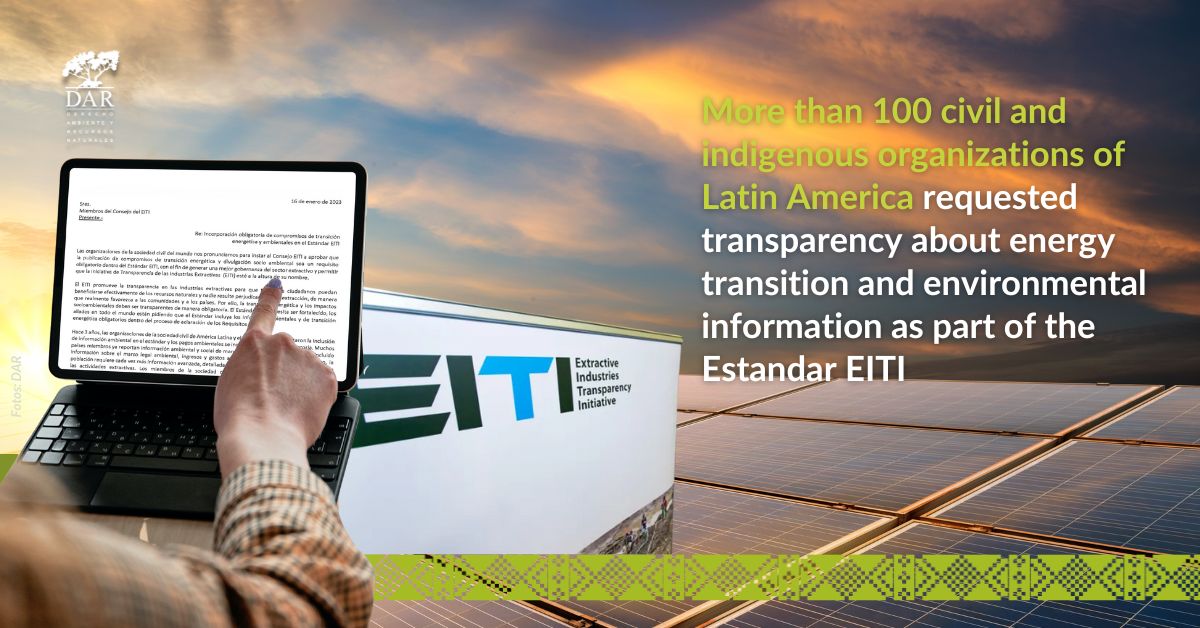Lima, January 18th, 2023.– More than 100 organizations from Latin America and the Caribbean requested through formal communication to the EITI Board (Initiative for the Transparency of Extractive Industries) to incorporate commitments for the release of information related to the energy transition and on environmental impacts linked to extractive industries as a mandatory part of the EITI Standard.
Remember that the EITI is a mechanism whereby Member Countries and companies in the extractive sector commit to disclosing information on the way in which rights of extractive activities are granted; as well as the way in which income reaches governments and benefits the population.
The letter states that having more public information on the climate effects of extractive activities and on actions aimed at reducing dependence on fossil energy would help countries to improve compliance with their climate commitments.
Likewise, the communication states that information on environmental regulations and environmental impacts of the extractive sector are a minimal source of information on projects and the absence of such disclosure generates conflicts in many regions. In Latin America and the Caribbean alone, conflicts related to extractive projects represent two thirds of all social conflicts.
Subsequently, it has been requested that effective compliance with prior consultation be included among the commitments during the life cycle of extractive projects that are developed in indigenous territories.
In this sense, civil society organizations in Latin America hope that the EITI Board will approve the mandatory incorporation of these commitments in the Initiative Standard next March, during the meeting to discuss the refinement of the Standard. Subsequently, in June, the EITI Global Conference will be held in Dakar (Senegal), where the achievements of the Initiative will be reaffirmed and its work agenda for the next decade will be drawn up.
Notes
(1) Specifically the request is about the standard 6.4 on “Environmental impact of extractive activities” , which says: “Implementing countries must disclose information on the management and monitoring of the social-environmental impact and energy transition of extractive industries. This should include:” (i) project-level information from all environmental and social assessments and monitoring, showing the real impact of extractive activity on ecosystems and communities; (ii) all environmental licenses and authorizations, disaggregated by company and project, including how authorities monitor environmental and social commitments; (iii) energy transition commitments, including carbon prices and taxes, disclosure of subsidies, reserves, break-even/closing prices, or energy transition scenario planning; (iv) commitments on prior consultation.
(2) http://www.ejolt.org/


